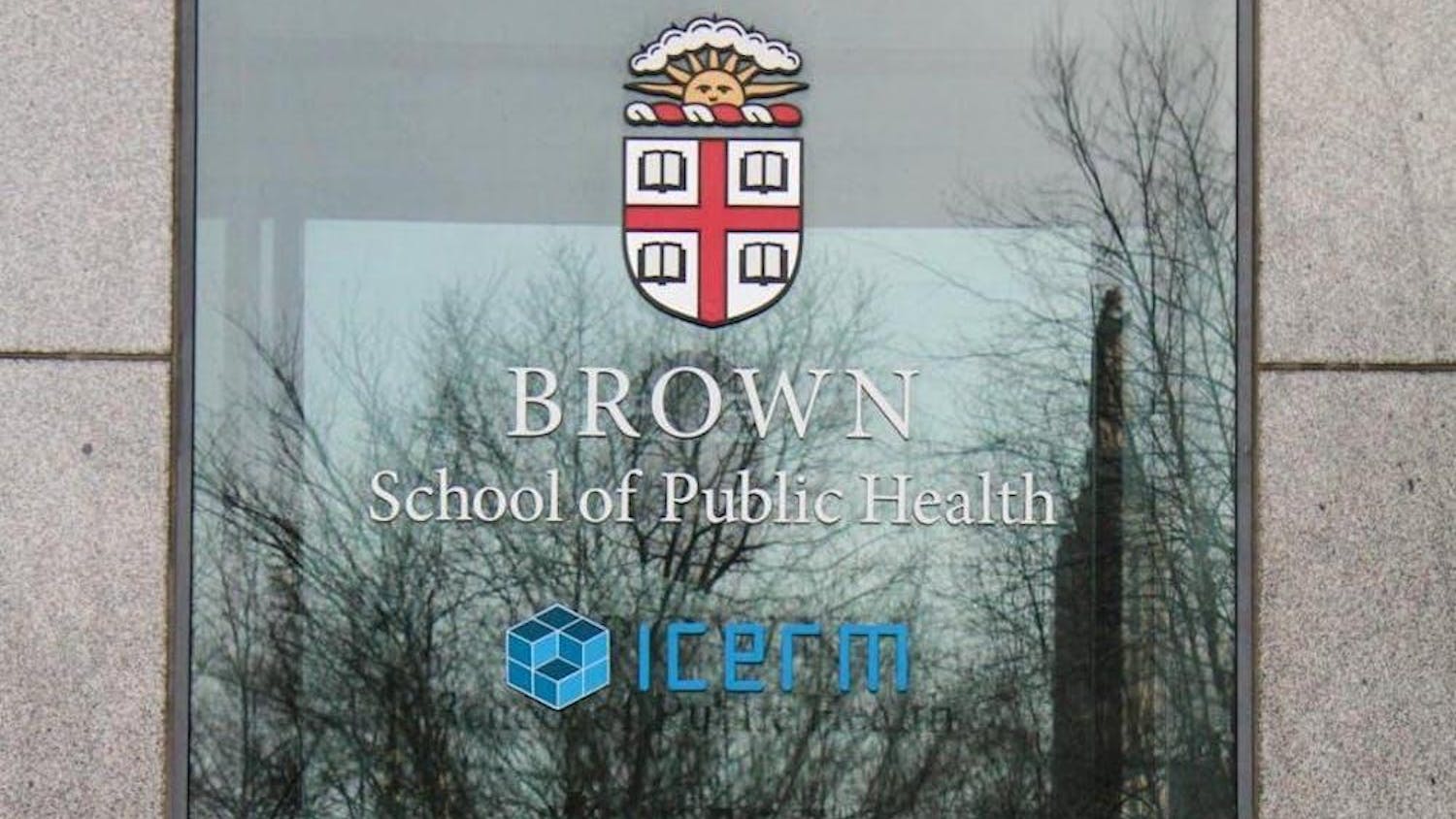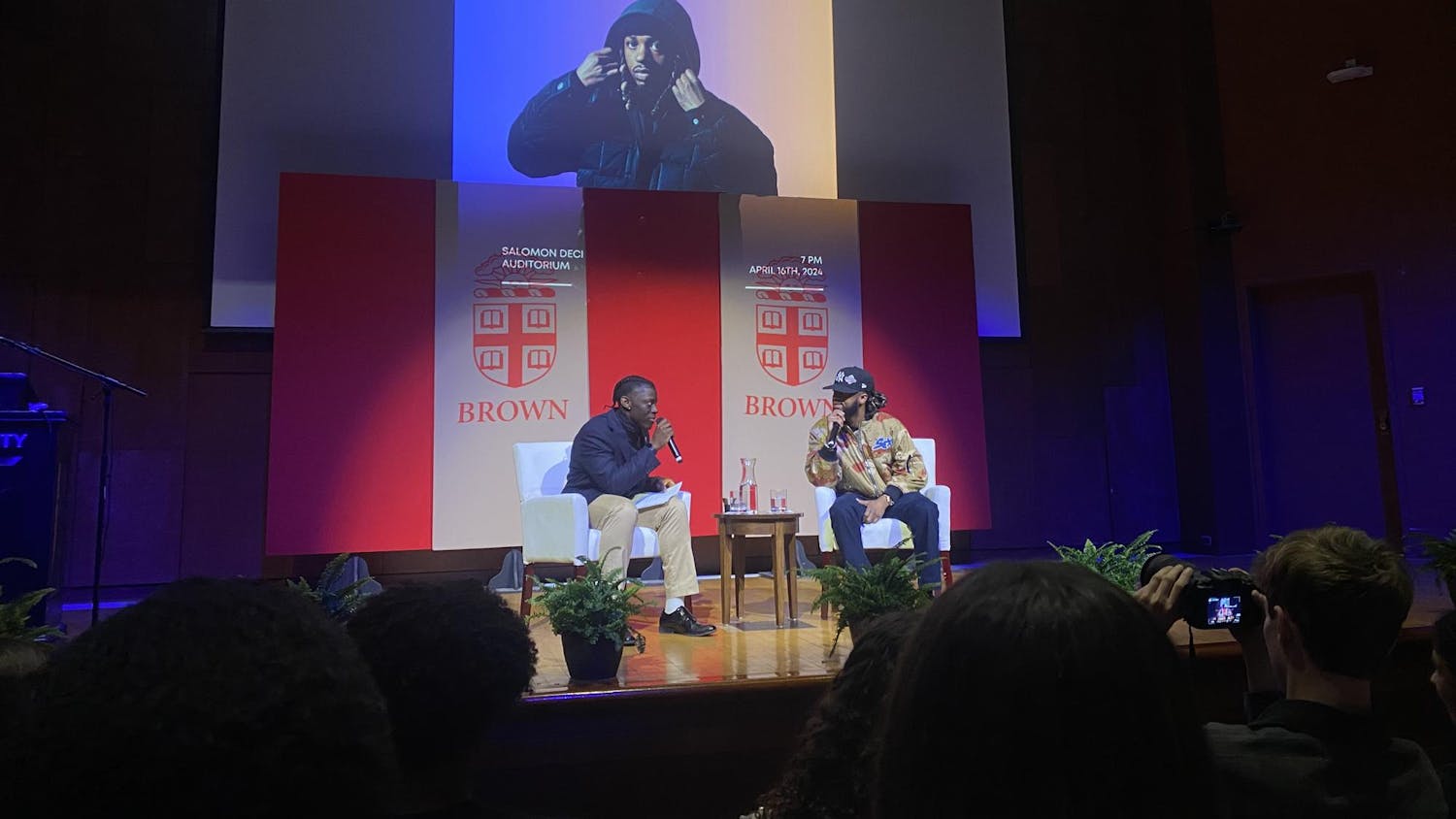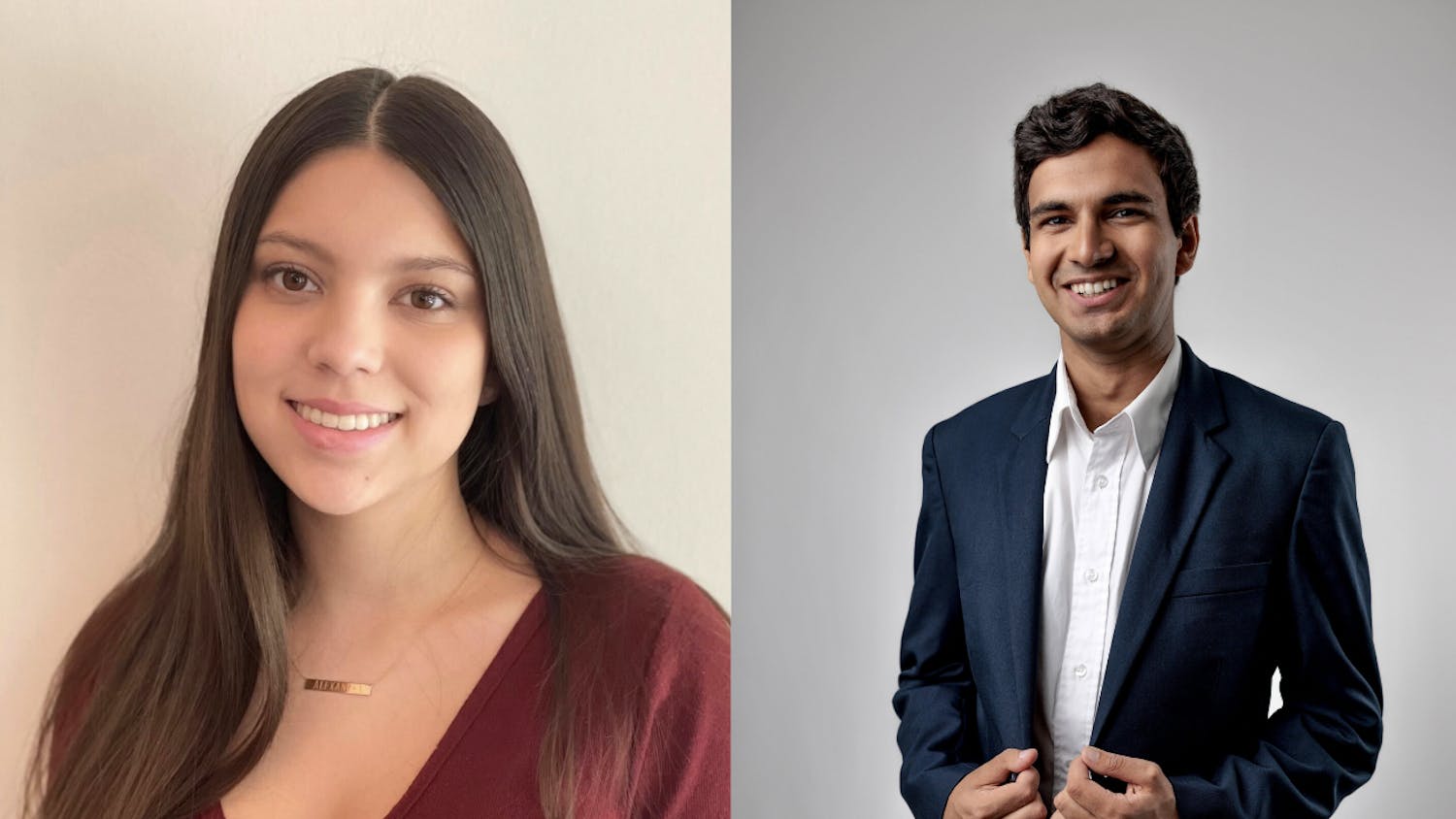The voices of around 60 teal-clad students during Saturday’s March Against Sexual Assault welcomed Jaclyn Friedman, feminist activist and writer, to College Hill. Chanting lines such as “No slut shaming, no victim blaming” and “Yes means yes, no means no. Whatever we wear, wherever we go,” students congregated in front of Sayles Hall and marched around campus before returning to the Main Green for Friedman’s keynote speech.
Emily Schell ’16, co-founder of Stand Up!, spearheaded the event as part of the launch of Sexual Assault Awareness Month to teach students about rape culture on campus.
Schell said she began organizing the Stand Up! initiative in October, putting together a 30-person committee representing the diversity of women’s groups on campus. The biggest challenge Schell faced was combating the tension surrounding sexual assault and including those who typically feel marginalized during conversations about sexual assault, she added.
A chorus of snaps greeted Friedman after the march. In seeking a keynote speaker, the Stand Up! committee envisioned someone who recognized the voices of underrepresented groups in the discussion about sexual assault, such as people of color, those who identify as LGBTQ and men, Schell said. As a queer woman, Friedman was a perfect fit, she added.
Friedman began her speech by explaining misconstrued ideas about sexual assault. She said the phrase “no means no” does not go far enough in distinguishing rape from consensual sex, since sexual activity requires “affirmative consent” from both parties.
She said the common misconception that “rapists are monsters” hinders the public from identifying more common forms of sexual assault, often perpetrated by a friend, relative or acquaintance. Friedman also emphasized society’s widespread failure to acknowledge that same-sex rapes happen and that men can also be rape survivors.
“Anybody can be a rapist, and anybody can be a victim. And when we make that invisible, that’s rape culture too,” she said.
Rape culture stems from commodifying sex, Friedman said, adding that sex should be perceived as a “creative, collaborative action between two people,” much like playing music together. This requires constant communication between partners, much like on a synchronized swimming team, Friedman said. “If you are not willing to be present for your partner, you do not have business having partnered sex.”
As a survivor of sexual assault during her undergraduate experience at Wesleyan University, Friedman seeks to redefine the definition of “loyalty” to a school.
Victims may be perceived as disloyal to their alma matters by speaking out about sexual assault, garnering unwanted media attention and sullying an institution’s reputation, Friedman said. But Friedman countered this idea, saying the only way to make an institution great is to create a safe campus, responsive to the concerns of people with the least power.
Administrators at colleges and universities can create “judicial processes that are transparent and fair” and foster active prevention of rape culture through pre- and post-testing of sexual violence education to gauge its effectiveness. Students can combat rape culture by speaking up and asking difficult questions, even among friends, she said.
Grace Yoon ’17, a Stand Up! committee member and Herald contributing writer, said the crowd that joined the march was “disappointing” compared to the massive response that Stand Up! received on Facebook. Yoon said she fears this underwhelming attendance may have led Friedman to think Brown students are apathetic about sexual assault.
But Friedman’s speech was pertinent to Brown and helped students identify instances of sexual assault on campus, Yoon said.
“The speaker was amazing, it was way better than any speech I’ve ever really heard,” said Tionne Pete ’17, adding that many bystanders also stopped to listen to Friedman.
Katie Finn ’16, vice president of philanthropy for Alpha Chi Omega, said she attended the march because Stand Up!’s cause aligned well with her sorority’s work against domestic violence. Finn said during the march many cars honked and bystanders cheered to show support.
Isabella Levy ’16 said she appreciated that Margaret Klawunn, vice president for campus life and student services and interim dean of the College, attended the speech. The administration’s support contributes to the initiative’s visibility on campus, she added.
Though there are students on campus against the Stand Up! initiative’s cause, no vocal opposition arose, said Kevin Carty ’15, a Stand Up! member and former Herald opinions columnist, adding that it is a success that people do not feel comfortable objecting Stand Up!’s message. “You could not say the same thing about two years ago.”
“Rape culture is something that is super intangible, people don’t even know what it is. If you don’t name the problem, it can be seen as something that’s out of sight, out of mind,” Schell told The Herald.
Levy said that when she first came to Brown, her knowledge of the issues related to sexual assault was limited. But after hearing stories from friends, Levy said she realized how prevalent rape culture is on campus. “It became clear really quickly that it’s more ubiquitous than you think.”
Sexual assault is an “issue that can really be changed by education,” especially in a college setting, Finn said.
Events like the March Against Sexual Assault remind rape survivors that others care about them and that they have a support system on campus, Pete said.
“You shouldn’t have to be in a workshop to have a conversation about this,” Schell said in her introductory speech. “Sexual assault is everyone’s issue.”
ADVERTISEMENT




